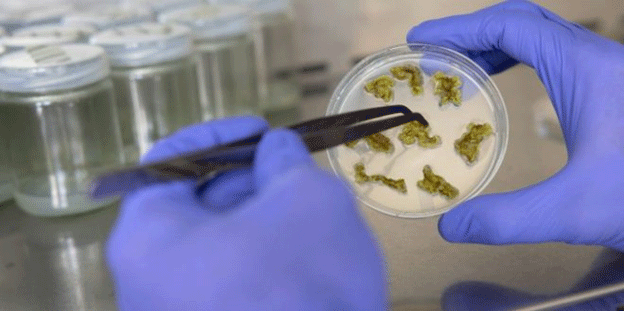The future of protein production is evolving, and PoLoPo is at the forefront of this change. Known for its groundbreaking work in molecular farming, PoLoPo has developed a revolutionary method for turning potato plants into micro-biofactories capable of producing large quantities of patatin, a highly versatile and functional protein. Once regulatory clearance is secured, PoLoPo will begin supplying commercial customers with this protein, which has gained significant attention due to its numerous applications in the food, beverage, and nutraceutical industries.
Patatin, the native protein found in potatoes, is a high-quality, allergy-friendly protein with a Protein Digestibility Corrected Amino Acid Score (PDCAAS) value of 0.99, making it a complete source of all essential amino acids. This protein is already valued for its ability to emulsify, gel, and texture in plant-based meat and dairy products, as well as in bakery items and protein drinks. What makes PoLoPo’s approach particularly compelling is that they’ve utilized patented metabolic engineering processes to boost the production of patatin within potatoes, turning these plants into efficient protein-producing machines.
In addition to patatin, PoLoPo’s innovative platform also enables the production of egg protein (ovalbumin) within potato plants. This dual capability opens up exciting possibilities for both plant-based food products and nutraceuticals, addressing the growing demand for sustainable, plant-derived proteins.
“We are keeping our eyes on the prize, which is bringing molecular-farmed egg protein to market, but conversations with clients revealed an additional demand for patatin in large quantities at a fair price,” said PoLoPo CEO Maya Sapir-Mir, PhD. This insight is significant because patatin, while a valuable protein, is currently in short supply and prohibitively expensive—often exceeding USD100 per kilogram (more than USD220 per pound). Current methods of extracting functional patatin are costly due to the inefficiencies in existing food processing infrastructure.
PoLoPo’s process, however, solves this problem. By using transgenic potato plants that naturally produce high levels of patatin in their tubers, the company can harvest these tubers once they reach sufficient size and extract the protein at an economically viable scale. The resulting protein is dried into a powder that integrates seamlessly into existing food formulations, making it easier for manufacturers to incorporate into their products without significant modifications. Notably, despite being derived from genetically engineered plants, the final protein product contains no genetic material and is considered non-GMO.
Most of the potato proteins currently available on the market are non-functional, as they are often destroyed during the extraction process used to isolate potato starch. This non-functional protein is typically directed to animal feed, pet foods, cosmetics, or pharmaceuticals. PoLoPo’s method offers a substantial improvement by producing functional, high-quality protein at a fraction of the cost of traditional extraction methods, with potential benefits for a wide range of industries.
With growing interest in plant-based proteins and increasing consumer demand for sustainable, allergy-friendly ingredients, PoLoPo’s molecular farming approach is well-positioned to meet these needs. By making patatin more affordable and accessible, PoLoPo could play a critical role in the future of food production, contributing to more sustainable, plant-based diets while addressing the challenges of protein scarcity.
PoLoPo’s innovative use of molecular farming to produce high-quality patatin from genetically engineered potatoes promises to revolutionize the protein market. By offering a cost-effective, sustainable solution for producing functional proteins, PoLoPo is paving the way for more affordable, allergy-friendly ingredients in food production. This breakthrough could significantly impact the food, beverage, and nutraceutical industries, making high-quality proteins more accessible while reducing reliance on animal-based sources.







